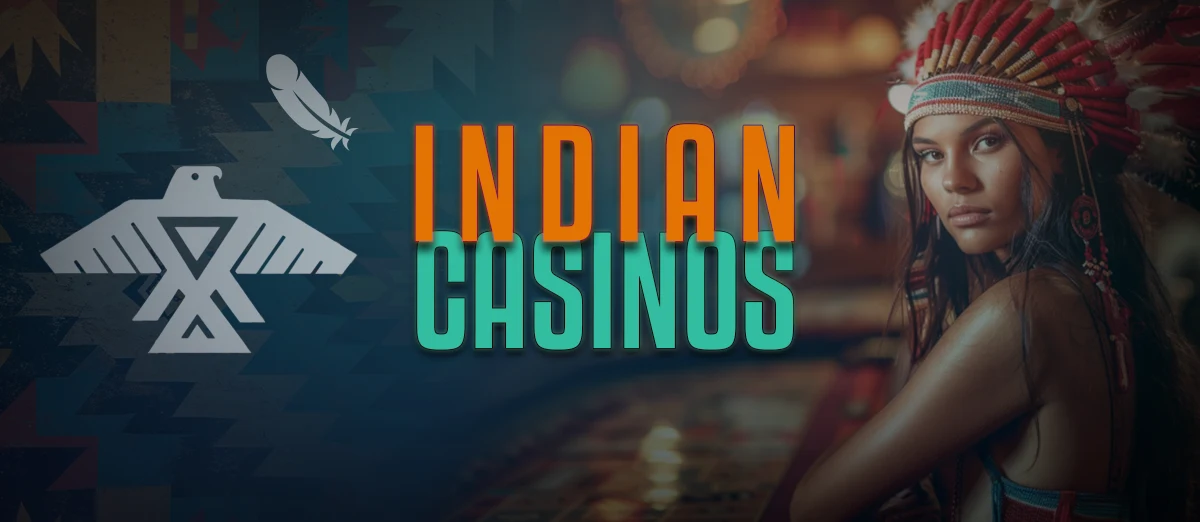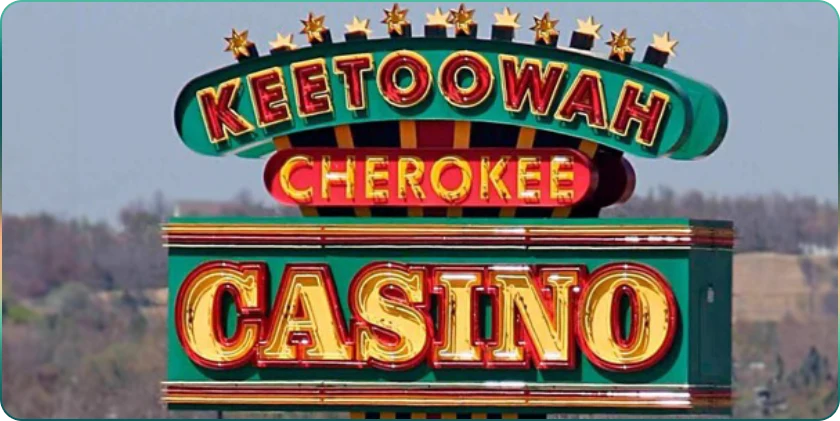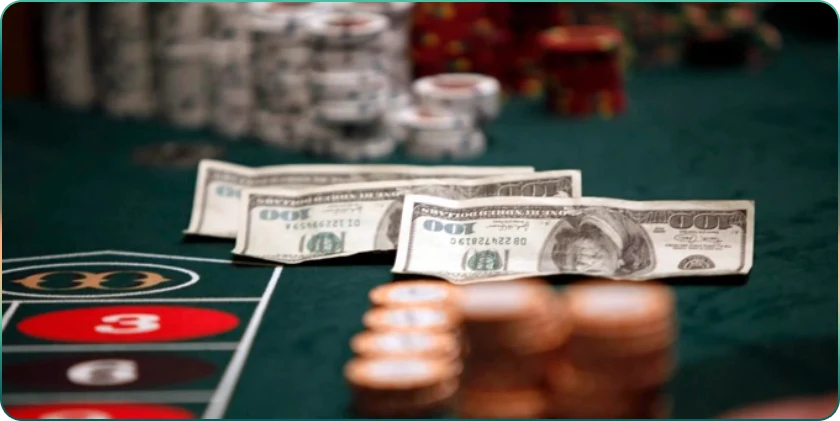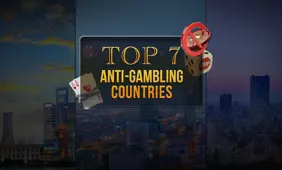Influence of Indian American Casinos on the US Gambling Landscape

In recent years, we have heard a lot about online gambling, especially in regard to the increasingly expanding US online casino market in addition to the progressive status of Las Vegas following the global pandemic.
Multiple states have passed online gambling laws to allow mobile sports betting, online casinos, or both and, as a result, these have largely been a major success, generating millions in taxation. In some cases, a slight decline in revenues from brick-and-mortar casinos due to online availability has also been noticeable.
However, there has been very little said about a particular vertical in the gambling industry, one, which has been an ever-present in North America for a number of decades - Native American casinos.

Tribal Casinos - Economic Giants beyond Las Vegas
Native American casinos, otherwise known as Indian Tribal casinos, have long had a major influence on gambling - especially in the US and, for a long time, these were the only establishments where it was legal to gamble, outside of Las Vegas and Atlantic City.
Indeed, there are Indian gambling establishments in over 50 percent of US states (29 in total), and all of these can be found on tribal-owned land, though as a side note, while this land is sovereign, it doesn't necessarily mean that all casinos that are found on tribal land are run by Native Americans.
What many people do not necessarily realize, is that Indian casinos are big business. Furthermore, the annual revenue that is generated by tribal gambling establishments significantly exceeds the figure that the entire Las Vegas strip churns out. In 2021, Native American casinos recorded a GGR (Gross Gaming Revenue) of $39 billion - over five times more than Las Vegas, which stood at $7 billion.
There are some misconceptions relating to tribal casinos, with many people believing that to enter one of these, you must be of Native American origin - this couldn't be further from the truth, and, in fact, there are those who prefer Indian casinos.
It is understood that the population of Native Americans in the US stands at 6.79 million in 2024 (roughly 2.9 percent of the entire US population). Furthermore, the vast number of Native Americans are considered 'poor', which essentially suggests that they do not have the means to use tribal casinos.
Why Do Indian Casinos Appeal to Gambling Enthusiasts?
As touched on, Native American casinos in the US have a number of selling points compared to the mainstream gambling organizations that can be found around the world. Another misconception is that the 'bigger names' have the largest casinos.
Aside from MGM Cotai’s 500,000 square footage of gaming space and Venetian Macau being 546,000 square feet, the largest in the world is, in fact, the Winstar World Casino in Thackerville, Oklahoma, which is owned by the Chickasaw Nation, a majestic building set in its own grounds, with 600,000 square foot of gaming space.
For those who like table games, the general consensus is that the odds are a lot more generous when compared to playing at mainstream land-based casinos.
In addition, Indian casinos generally boast a much more relaxed vibe compared to others - especially those on the Las Vegas strip. The fact is that they also do not want to aggrieve customers due to the fact that the revenue which is generated is invested back into their tribal communities to support the infrastructure. As a result, education and healthcare are two major beneficiaries of Indian casinos, and communities rely heavily on continuous customs from Indian casinos.
That doesn't mean, though, that 'anything goes' at an Indian casino; each customer is expected to behave like an upstanding member of society. However, there can be more attractive benefits to make sure that customers keep returning. In addition, staff can be a lot more pleasant in general at a tribal casino, because they know that they are representing their nation - the vast majority of employees at Indian casinos are Native Americans. As a result, they are essentially, morally invested in the casino's success, because a big percentage of the revenue helps their community.
Lasting impressions are a big factor because of this; customers are attracted by the welcoming hospitality and return due to how well they are treated. At mainstream land-based casinos, there is often more of a 'corporate vibe', with more of a focus on quick profits than quality customer service which can be a turn off to some people. Certainly, in this case, Indian casinos have an edge.
Strategic Alliances and Genius Partnerships
Over the years, Indian brick-and-mortar casinos have partnered with prominent businessmen, which has helped to significantly increase their status as a whole. Lim Goh Tong, once Malaysia's richest person, transformed an unexplored hillside by building the Genting Casino and Resort and partnered with the Mashantucket Pequot Tribe for Foxwoods Casino.
Meanwhile, former US President, Donald Trump, secured a partnership with Twenty-Nine Palms Casino Band of Mission Indians of California and, as a result, opened the Trump 29 Casino. Turning to advisors and investors is nothing new for Native American casinos because this has helped them to improve the service that they provide, in addition to securing valuable operating capital to assist with things like casino development, payroll and other vital day-to-day operations.
Furthermore, prior to its merger with El Dorado Resorts, Caesars (via Harrah's) managed Native American casinos for a number of years, taking a cut of the profits, though, due to its name being associated with the casino, it helped to raise its profile as such, also increasing the number of customers over a sustained period of time. The Caesars brand has long been a flagship of the Las Vegas strip.
The number of resorts that came under Caesar's management was quite extensive and consisted of Harrah's Ak-Chin, just outside of Phoenix, Harrah's Cherokee Casino Resort and Harrah's Cherokee Valley River Casino and Hotel in North Carolina.
Landmark Purchases of the Native American Community
There have been some noticeable achievements for the Native American community over the last few years and these have certainly been key in helping to further strengthen the relationship with its customer base, in addition to attracting further clients.
In May 2021, the sale of the Palms Resort to the San Manuel Band of Mission Indians for $650 million marked it being the first Las Vegas casino resort to be owned by a Native American tribe.
It's the gaming Mecca of the world and the place to be. It's a natural and a good fit for us to have an asset there that we can send our customers to, contribute to that economy and be part of the Las Vegas community.
Essentially, this was a major statement from the Native American community, which saw the profile considerably raised. Being able to own a land-based casino in arguably, the busiest gambling hotspot in the world, certainly made the gambling industry sit up and take notice.
In addition to all of the other benefits it will get, such as significantly increasing the overall revenue generated by Native American-owned Indian casinos on an annual basis, the tribe also acquires the casino's previous customers while providing a launchpad to attract others with 'the strip' being classed as high-value real estate.
From Revenue Boom to Online Expansion
In the period between 1997 and 2008, the Native American gambling industry witnessed considerable revenue growth - almost quadruple, which has laid the foundation for the success that has followed since. Indeed, during this time, revenue grew from $7.5 billion to just over $25 billion, highlighting the substantial influence of Native American casinos on the US gambling industry.
One particular point of note that could be hugely significant for Native American communities over the next few years is that tribes have made inroads into the hugely profitable online gambling sector over the past 12 months. It was first suggested over a decade ago that Native Americans might look to online gambling, though, talk of this went cold amidst possible legislative issues. However, towards the end of last year, conversations about this resurfaced, with a possible bill proposed that outlined revenue share agreements with some of the premier, mainstream brands.
Internet gaming is rapidly becoming the largest expansion of gaming in modern history and is quickly developing into a reality where tribes are on the outside looking in.
It remains to be seen whether this becomes a reality, and there is no doubt a number of hurdles to jump over and points to negotiate before agreements can be made across the board.

The Potential of Native American Casinos
It is fair to say that the next few years have the potential to be very exciting for the Native American community in the US, as far as the gambling industry is concerned.
Certainly, over the last decade, the profile and, therefore, popularity of Indian casinos has increased significantly, and, as a result, many gambling enthusiasts prefer these to mainstream ones.
The fact that there is a presence on the Las Vegas strip lends a major selling point, in addition to point of intrigue for visitors (especially international tourists), who may feel that the Native American-owned Palm casino could have something different about it, compared to all of the other resorts on 'the strip'.
Add to the fact that online gambling could soon become big business via joint ventures with major commercial brands, and Native American communities could well soon be reaping considerable social and economic benefits.





Review this Blog
Leave a Comment
User Comments
comments for Influence of Indian American Casinos on the US Gambling Landscape